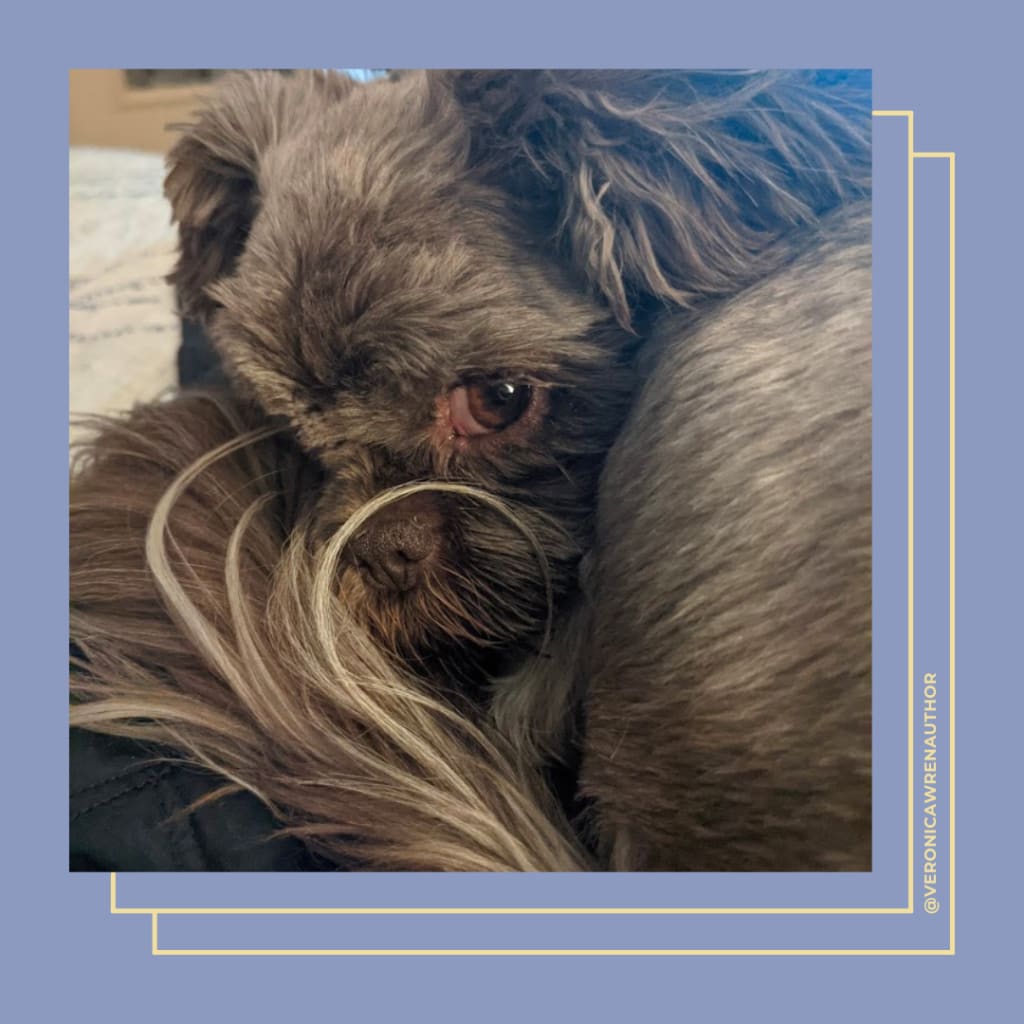The Public Health Issue of Nightmares
Dream a Little Dream of CPTSD

I have this recurring nightmare, and it’s really boring.
Don’t get me wrong, it’s terrifying, it just happens so often that I’m sick of it. Enduring the stress can feel more exhausting than staying up all night. Whether purposefully or not, I often do that instead.
Chronic nightmares, insomnia, and other sleep disturbances/disorders are some of the most common symptoms of CPTSD (Complex Post-Traumatic Stress Disorder), a condition with which I was diagnosed after escaping a five-year abusive relationship. But the issue of poor sleep is more serious than just needing an extra cup of coffee in the morning.
Dreams and Nightmares
Poor sleep hygiene can be detrimental to physical health in a host of ways; including hypertension, headaches, weight fluctuation, and chronic pain. Lack of quality sleep can also exacerbate symptoms of emotional distress often experienced by trauma survivors such as depression, anxiety, sexual dysfunction, hypervigilance, and suicidal thoughts/behaviors.
On top of that, it’s worth mentioning that navigating the world when you’re generally exhausted is freaking dangerous! Being tired affects your reaction time and overall performance in all areas. Have you ever been forced to take a long drive after sleeping poorly? The seat warmer starts making your seat a smidge too comfy, the droning of your audiobook becomes pleasantly fuzzy, the rhythm of the road reminds you of being rocked gently… Until you JOLT awake just in time to avoid running off the road.
Yikes, that was a close one.
SOS, NFOS
According to the National Sleep Foundation, nearly 35% of Americans have reported sleeping less than the recommended 7 hours per night. That’s a lot of exhausted people out there making big life choices and handling heavy machinery.
Nightmares are truly a public health issue. Unfortunately, stigma, misinformation, fear of disclosure, and other barriers surrounding trauma disorders can make it hard for sufferers to recognize or seek treatment for sleep disturbances as a clinical symptom. These reasons also make it difficult to convince many medical providers to take reports of nightmares or other sleep problems seriously, despite the clear health risks of leaving them unaddressed.
Running on a Dream
So, what’s my boring-ass recurring nightmare?
The dream itself isn’t always exactly the same, details shifting based on what’s happening in my life at the time. Sometimes the setting is a college dorm, a school, or a winding cabin with seemingly endless rooms. The ominous feeling, however, is always the same, stemming from an unknown source of terror just steps behind me.
As I flee this unseen monster, I pass through rooms with various loved ones who don’t see why I’m making such a fuss. They completely ignore my urgent attempts to warn them, often while spouting vile criticisms that confirm my worst fears about myself. The omnipotent voice of my pursuer joins in on the taunts, echoing in my head as though on a loudspeaker.
I’d like to let my brain know, if she’s reading: I get the symbolism! I’m afraid of not being believed about my abuse. The monster is my abuser still tormenting me psychologically. Message received. Very clever. 👏
Anyway, I also pass through rooms and scenes with more solid, real-world dangers: specific memories of abuse and heartbreak, attackers shooting at me while my own weapon malfunctions, loved ones coming to harm while I’m helpless to stop it.
On especially fun nights, there’s also some kind of natural disaster happening at the same time as all of this, resulting in mass casualties that I get to bear witness to as I continue to barely escape. Lately, it’s been floods.
The walls squeeze ever-closer as I fight my way through the maze of horrors and heartbreak. A mix of constant terror and hopelessness propel me endlessly forward, however, I never gain any ground on the monster; he’s always right on my heels.
I’m always certain safety is just around the corner if I can only keep moving, but I never quite reach it.
And I can never stop.
Up All Night
It’s a lonely feeling, being up all night. It can be even lonelier when you’re expected to function normally the next day. Overwhelming emotions such as frustration, inadequacy, and powerlessness, often arise as you try to navigate the
To anyone else fighting monsters in the dark, I hope you’re able to find a moment of validation by reading this. Maybe it will even encourage you to share this information with your doctor and encourage them to learn more about the treatment of sleep disorders. You absolutely deserve to sleep restfully after what you’ve overcome.
In researching this article, I felt an odd sense of comfort when I learned that around 80–90% of PTSD sufferers report experiencing insomnia and 50–70% report nightmares. There are so many of us, why aren’t we allowed to talk about it?
Those statistics give me hope that we can find each other, advocate for change, and find healing and support. They give me hope that the next time I jolt awake at four in the morning, I won’t feel quite so alone.
I’m Glad You’re Here
After years spent advocating for domestic violence victims while hiding my own suffering, I absolutely refuse to let anyone feel abandoned in their abuse or its aftermath.
Trauma sucks. That’s why I’m learning to make talking about my own experiences as normal as possible while actively calling out abuse and inequity when I see it. My aim is to help others develop these tools so we can start making some much-needed change.
I want to give a special recognition to the National Institutes of Health for the availability of several of the peer-reviewed studies linked above. I end up on their site so often while researching and writing articles on CPTSD, and I’m incredibly grateful for the ability to access such important information about my condition from a trusted resource.
Please support my continued writing (and help me inch my way toward my first book) by following and engaging with me on trauma and advocacy! Day or night, you know I’ll probably be awake.
Subscribe in one click to receive your FREE digital copy of my new guided journal, “Empower and Heal: 90 Days of Transformational Prompts for Trauma Recovery, Self-Discovery, and Growth”, delivered straight to your inbox!
Veronica Wren Trauma Recovery Book Club
The Woman in Me – Britney Spears
This post may contain affiliate links. This just means if you click a link and decide to make a purchase, I'll earn a few extra pennies to support my book-buying habit (and do an elaborate, celebratory dance around my apartment just for you). My promise to you is that I'll only ever recommend resources I truly believe in and have found beneficial in my healing journey. Happy reading!
About the Creator
Veronica Wren
Trauma sucks. Recovery shouldn't. Subscribe here for your FREE exclusive guided journal
❤️🩹 bio.link/veronicawren ❤️🩹
Domestic Abuse & CPTSD Recovery Coach






Comments
There are no comments for this story
Be the first to respond and start the conversation.